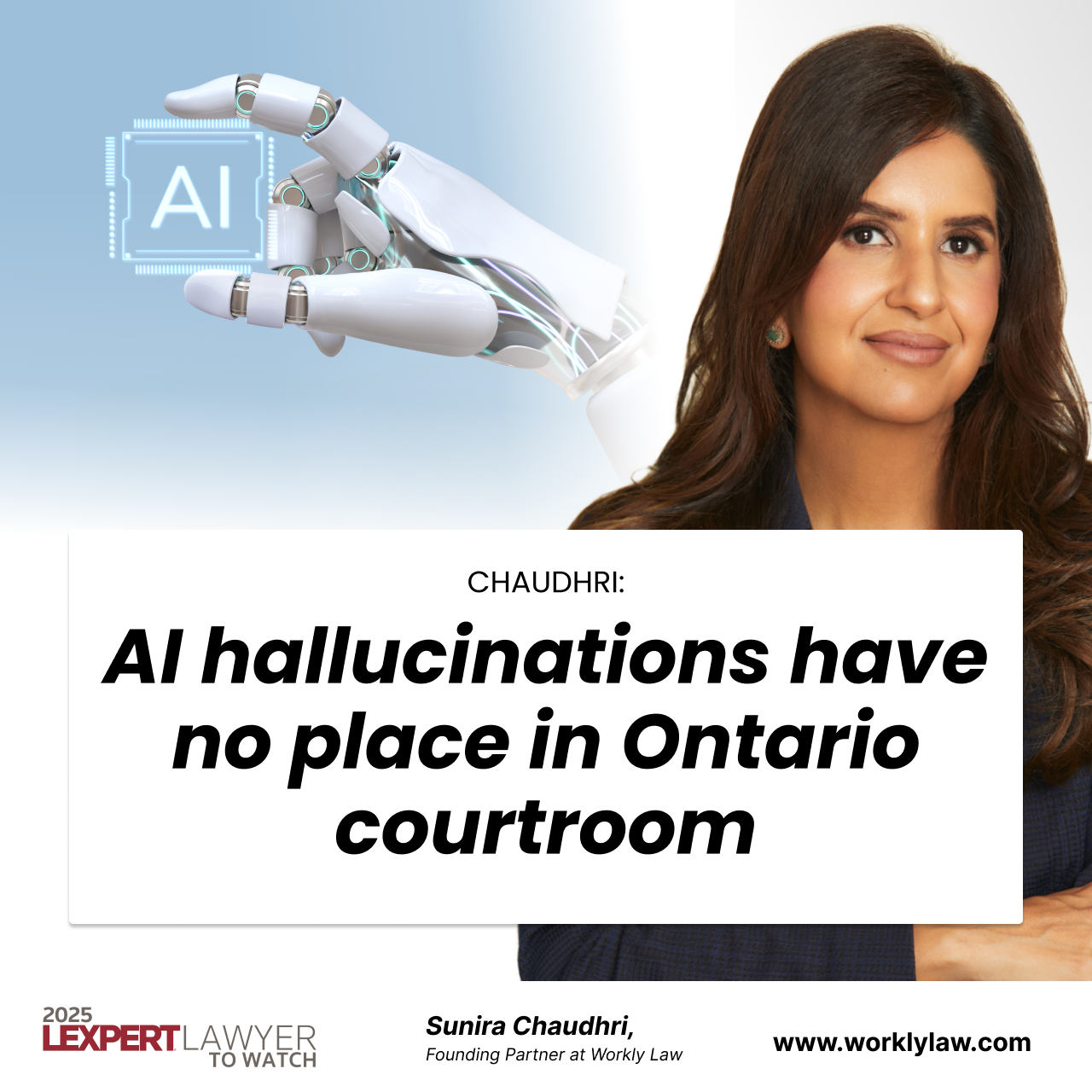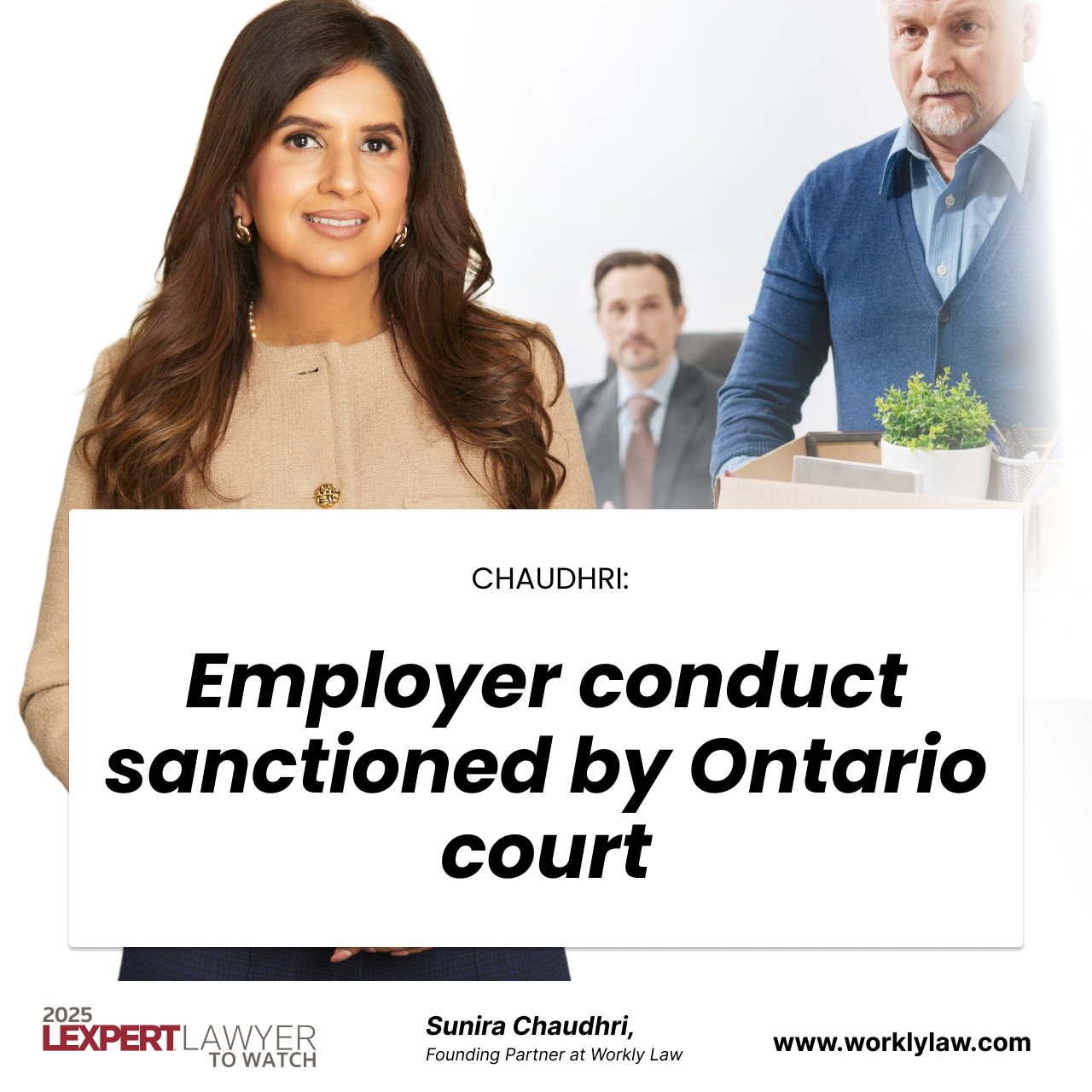Sunira Chaudhri
CHAUDHRI: AI hallucinations have no place in Ontario courtroom

Artificial Intelligence should never be the last set of eyes on a document
In fact, a recent Leger poll reported that almost half of Canadians polled confirmed they currently use AI in personal and professional settings – up from only 25% in 2023.
Notably, the biggest concern Canadians reported in using AI was an overdependence on AI tools.
Well, today I tell a story about what an over dependence on AI can do.
Earlier this month, for what appears to be the first time, an Ontario court received court filings from a lawyer that contained fake legal cases, or “AI hallucinations.”
As one might imagine, it is a serious issue for fake cases to be presented in any courtroom. The citations “look” real and could easily be accepted if not tracked back to a source or through sheer inadvertence.
The fake cases were flagged by the presiding judge, Justice Fred Myers, who addressed the AI-generated content in a court decision released earlier this month. The judge noted that the fake cases were discovered when hyperlinks citing the cases did not link to the actual cases cited. When the citations were searched on a common legal database, CanLII, they could not be found either.
Finding the AI submissions to be a serious issue warranting a separate court appearance, Justice Myers held a later court date to determine if the responsible lawyer should be held in contempt. In a decision released a few days ago, no contempt was found.
At the hearing, the lawyer detailed that she had some 30 years of experience but admitted to not being comfortable with technology, including the use of generative AI. She told the court she delegated some file work to her staff but did not direct the use of AI to complete it. Still, she accepted that she is ultimately responsible for the work of her staff.
The decision went on to state: “There had to be someone who was going to be the first lawyer to file AI hallucinations here. It was likely to be someone so junior as to over-estimate the infallibility of AI, or someone so senior as to not really yet understand its fallibility.”
With almost half of the country using AI tools, one cannot underscore the consequences of its haphazard use. What strikes me most, is that the lawyer at issue in this case was not tech savvy and did not seek to cut corners or reduce her workload.
She relied on her team, as most would, but was swept up in the aftermath of the work product. When working on big projects at work, most of us are accustomed to divvying up tasks among team members. We assume and expect that our counterparts are meticulous and careful to cross-check their own work.
Any of us could be caught up in an AI mess like this one. It is scary to think of the loss of trust and credibility its use can create in an instant.
Perhaps some workers believe that using AI enhances what they do and how fast they can do it. But AI should never be the last set of eyes on a document. It is far from being the final frontier.
The legal industry has received its first reckoning when it comes to AI use in Ontario. It is sure not to be the last.
Have a workplace question? Maybe I can help! Email me at sunira@worklylaw.com and your question may be featured in a future column.
The content of this article is general information only and is not intended to be legal advice.
Related articles
POWER: Ontario Minimum Wage Increase Effective October 1, 2025
Effective October 1, 2025, Ontario’s general minimum wage will increase to $17.60 per hour (up from $17.20). This annual adjustment is tied to the Consumer Price Index and affects nearly all employees covered by the Employment Standards Act, 2000 (ESA). For employers, this increase is a timely reminder to review pay practices, budgets, and compliance processes before the fall.
CHAUDHRI: Employer conduct sanctioned by Ontario court
Courts do not want employees to be 'starved' by employers in an effort to have them accept lower packages on termination


